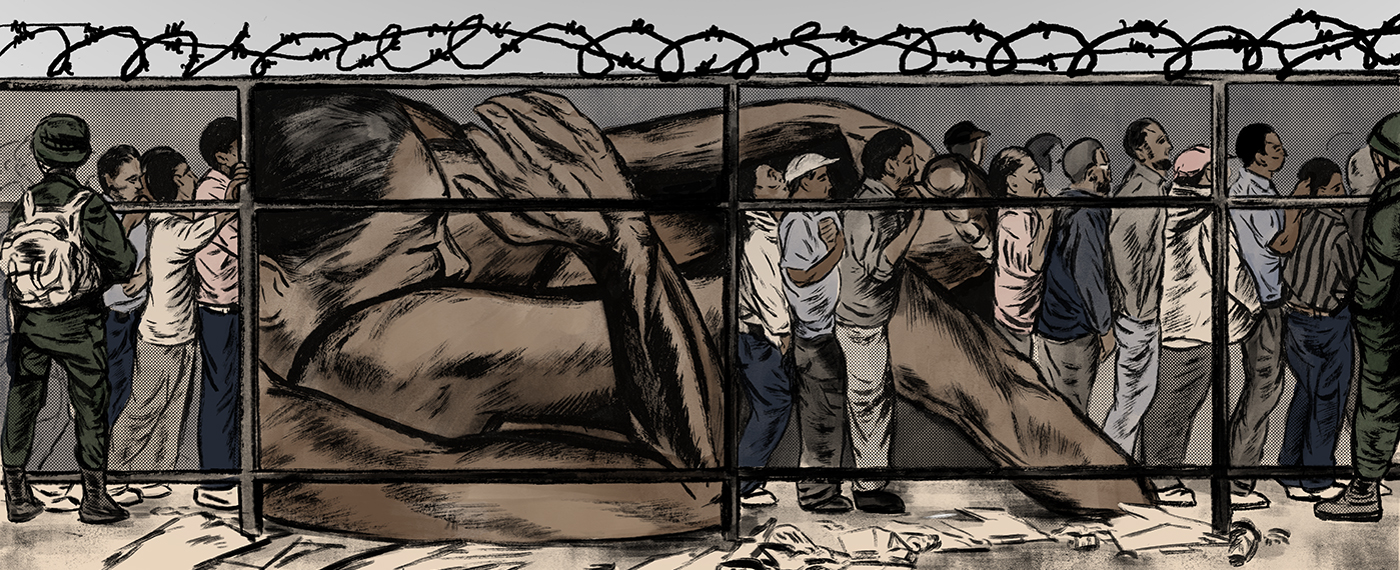![Perpetual Turmoil: A man-made holy pandemic that never ends [Book Review]](https://epalestine.ps/sambahour/wp-content/uploads/2020/04/BookCover252832529-768545-1.png)
by Sam Bahour | April 17, 2020 | Books
Before Israel prohibited me from having free access to Jerusalem, I would meet up for lunch in East Jerusalem with Avner, a Jewish Israeli friend of mine, at the Ambassador Hotel, owned by a mutual friend of ours. Our political arguments always ended on the same note. I would claim that Israel has, and always had, a master plan and acts with full intention. Avner would counter that claim saying I’m giving the Israeli side too much credit and that much of what we are facing are a hodgepodge of haphazard missteps that have created an unfortunate reality on the ground. Enter Lives in Common: Arabs and Jews in Jerusalem, Jaffa and Hebron by Menachem Klein, another Jewish Israeli friend of mine. The book unintentionally offers Avner and myself an answer to our ongoing debate. It turns out we are both correct. How so? Read on.
![Kingdom of Olives and Ash: Writers Confront the Occupation [Recommended]](https://epalestine.ps/sambahour/wp-content/uploads/2017/06/KingdomofOlivesandAsh-708468-1.jpg)
by Sam Bahour | June 2, 2017 | Books
Proud to have contributed in several ways to this book project. Actually, it’s much more than a book project as you will see by who the authors are and what their riveting stories reveal.

by Michael Chabon | May 17, 2017 | Sam in the Press
“The tallest man in Ramallah offered to give us a tour of his cage. We would not even have to leave our table at Rukab’s Ice Cream, on Rukab Street; all he needed to do was reach into his pocket…” Pulitzer Prize-winning author Michael Chabon roams the West Bank with Sam Bahour. This essay was first published on Literary Hub before appearing in the writers’ compendium, “Kingdom of Olives and Ash” (2017).
![The frozen Chosen: Michael Chabon’s “The Yiddish Policemen’s Union” [Book Review]](https://epalestine.ps/sambahour/wp-content/uploads/2016/11/BookCover-hires-1.jpg)
by Sam Bahour | November 1, 2016 | Books, Writings
Reading fiction does not come easy for me. I guess, while living under a military occupation, there is too much non-fiction pounding at our lives to allow us to get happily lost in fiction. Reading The Yiddish Policemen’s Union may have changed that. No wonder this novel received a ton of awards; it takes fiction to new levels. Not only does Michael have a truly amazing command of the English language (proof being that my dictionary accompanied me in turning each of the 414 pages), but it turns out his Yiddish is not so bad too. Add to that a true historic premise to base his plot on, and linking the story to a few themes that are alive and well, albeit repulsive (think murder, racism, substance abuse, and more) in today’s real world, and what comes to life is something that you’ll be reflecting on long after the book takes its well-earned place on your bookshelf.
![Perpetual Turmoil: A man-made holy pandemic that never ends [Book Review]](https://epalestine.ps/sambahour/wp-content/uploads/2020/04/BookCover252832529-768545-1.png)

![Kingdom of Olives and Ash: Writers Confront the Occupation [Recommended]](https://epalestine.ps/sambahour/wp-content/uploads/2017/06/KingdomofOlivesandAsh-708468-1.jpg)

![The frozen Chosen: Michael Chabon’s “The Yiddish Policemen’s Union” [Book Review]](https://epalestine.ps/sambahour/wp-content/uploads/2016/11/BookCover-hires-1.jpg)


!["Palestinian Refugees in International Law" (second edition) [Recommended]](https://epalestine.ps/sambahour/wp-content/uploads/2020/07/PalestinianRefugeesinInternationalLaw.jpg)